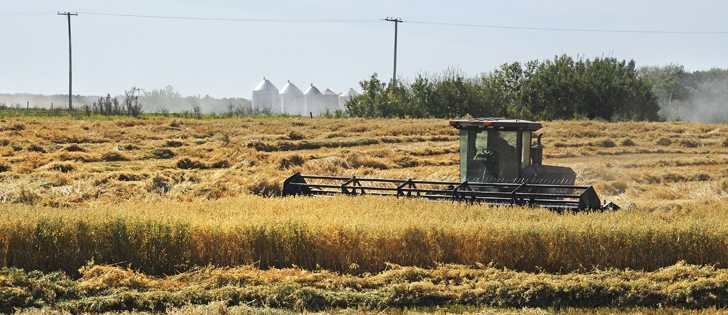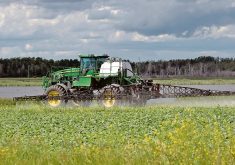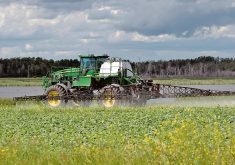Richardson International is maintaining the status quo when it comes to oats. The company will continue to accept oats that are sprayed pre-harvest with glyphosate.
“We will take oats that meet our visual specs, whether they are treated with glyphosate or not,” Al Raine, Richardson’s assistant vice-president of crop inputs marketing, said Feb. 11 at Crop Connect in Winnipeg.
Richardson needed to re-evaluate its position because Grain Millers, another major oat buyer in Western Canada, decided last year to stop accepting oats that have been desiccated with glyphosate. Growers that sell to Grain Millers must sign an affidavit that prohibits pre-harvest glyphosate, the active ingredient in Roundup.
Read Also

U.S. government investigates high input costs
The USDA and DOJ are investigating high input costs, but nothing is happening in Canada.
Terry Tyson, Grain Millers’ procurement manager in Yorkton, Sask., said the company made the decision after a multi-year investigation into problems with oat quality and functionality.
It found that early application of glyphosate before harvest compromised oat flake quality and water absorption.
Grain Millers concluded that the practice also reduced the amount of beta glucan, a soluble fibre linked to cardiovascular health. Quaker and other food manufacturers require certain beta glucan levels to make heart healthy claims for oat products.
Richardson, which operates oat milling plants in Portage la Prairie, Man., Martensville, Sask., and Barrhead, Alta., hasn’t witnessed problems with oats or heard complaints from its food industry clients.
“In a review of finished products over the last three years, we have met our customer specifications and haven’t had (negative) feedback on product quality issues,” Raine said.
“We haven’t seen the kind of results that they (Grain Millers) have seen.”
However, customers did ask Richardson to test oats for glypho-sate.
“In 2015, we started including glyphosate residue testing. We found nothing above what we call an undetect level, which is .05 parts per million.”
“Our position: it’s a good tool to have but we need farmers to follow the guidelines.”
Contact robert.arnason@producer.com
















